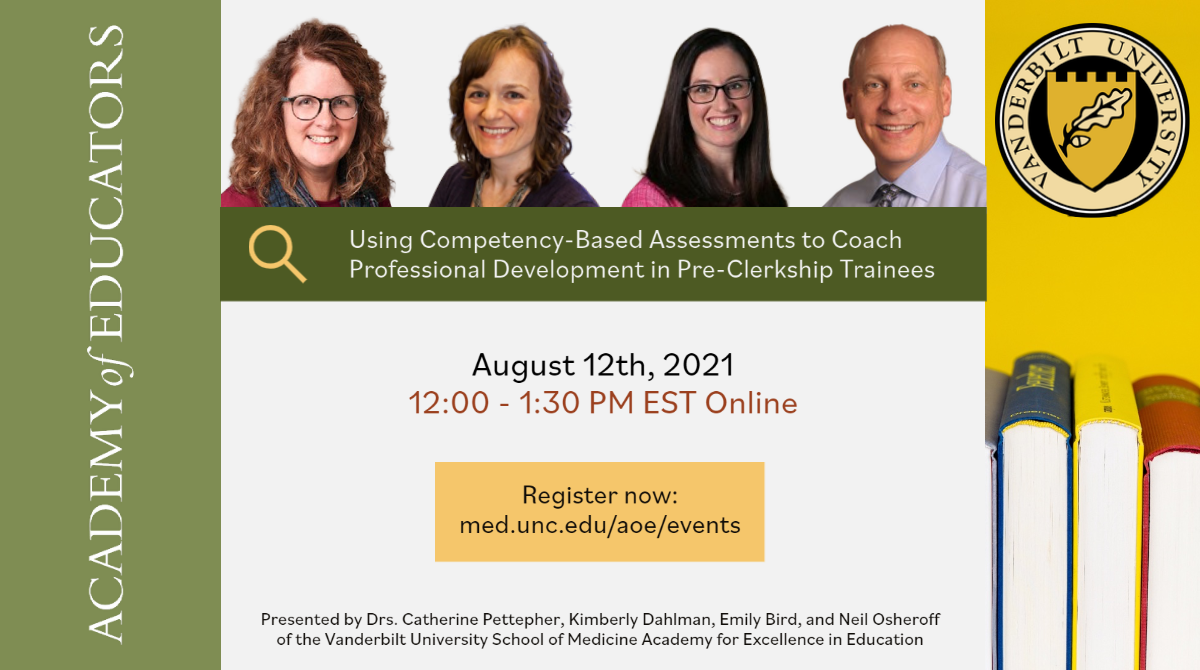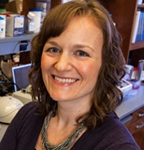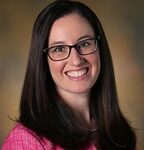
- This event has passed.
Using Competency-Based Assessments to Coach Professional Development in Pre-Clerkship Trainees
August 12, 2021 @ 12:00 PM - 1:30 PM

Register in advance for this meeting:
After registering, you will receive a confirmation email containing information about joining the meeting. If you are unable to attend the event, it will be recorded and stored on our Workshop Recordings page.
Purpose and Rationale:
Health professionals require skills and attitudes beyond medical knowledge and pre-clerkship faculty play an early role in developing these attributes in students. However, because of the heavy focus on medical knowledge during pre-clerkship training, programs often struggle to incorporate experiences and assessments that prepare students for all aspects of clinical work. One approach to addressing this issue is to incorporate competency-based assessment schemes into the pre-clerkship curriculum that are compatible with established small group learning modalities. While maintaining the importance of medical knowledge, competency-based assessment strategies allow a more holistic view of student development and can be used to coach learners in a variety of domains, such as practice-based learning and improvement, systems-based practice, interpersonal skills and communication, and professionalism. They also provide students with rich feedback across all aspects of their performance and establish a roadmap that encourages learner development and sustainability.
Session Objectives:
This interactive workshop will provide practical information and a framework that participants can use to implement milestone-based assessment strategies that include multiple competency domains at their institutions. After completing this workshop, participants will be able to:
- Describe qualitative formats of assessment and how they can be used to equip students with a diverse set of competencies during pre-clerkship medical education.
- Design different team-based learning environments that can be used to observe student behavior.
- Discuss how feedback from these sessions can be used to identify previously undetected competency challenges and allow opportunities for coaching and remediation before students enter the clinical workplace.
Significance:
This workshop addresses issues that are timely and highly significant. Given the density of modern curricula, it is critical to develop strategies by which the learning of medical knowledge can be integrated with strategies that provide coaching for learners in domains that extend beyond medical knowledge. These strategies have enabled Vanderbilt University School of Medicine to reduce the pre-clerkship phase to one calendar year, while at the same time producing learners that are highly knowledgeable and progress to the clerkship phase with greater inquiry, more holistic thought processes, and enhanced maturity as compared to students from earlier curricula with two-year pre-clerkship phases. In our opinion, the use of competencies is in its infancy, just as curricular integration was a decade ago. Thus, we believe that it is a highly significant topic that will be relevant to current systems of health professional education and to the development of future curricula.
Activities and Schedule:
The workshop will begin with an interactive discussion that explores the advantages and challenges of incorporating competency-based assessments into health professional curricula. Audience participation will be strongly encouraged. This activity will discuss the differences between “competencies” and “competence” and describe milestone language and learning environments that can be used to assess competencies. Attendees will then break into small groups and devise approaches for integrating novel activities into their curricula that could be used to observe specific student behaviors and apply competency-based assessments. Participants will share their strategies and develop accompanying milestone language for specific competency domains. The workshop will close with an interactive group discussion about how competency-based feedback can be leveraged to enhance student development and sustainability.
Expected outcomes:
This workshop will benefit curricular leaders, course directors, administrators, and interested faculty members who are involved in student health professional education and assessment in the pre-clerkship curriculum. Novice educators and those who teach in the clinical workplace will also benefit from learning about the implementation of cutting-edge assessment strategies. We expect that attendees will leave the workshop with practical strategies and a framework for implementing milestone-based assessments of students at their institutions. Pre-clerkship faculty play an important role in shaping expectations and monitoring learners’ progress in diverse domains. The approach described in this workshop encourages learners to shift their focus from course grades to their preparation for the profession. It also fosters habits of self-reflection and self-regulated life-long learning.
Workshop Facilitators
 Cathleen Pettepher, PhD (Professor of Biochemistry and Medical Education and Administration, and Assistant Dean for Medical Student Assessment) is an anatomist and a cell biologist. She is a medical school block director, a Master Science Teacher, and a facilitator in the case-based learning (CBL) program, where competencies are assessed. She also co-leads the pre-clerkship medical student phase (with Dr. Osheroff) and helped institute the competency-based assessment program. In 2019, Dr. Pettepher received the Alpha Omega Alpha Robert J. Glaser Distinguished Teacher Award from the Association of American Medical Colleges.
Cathleen Pettepher, PhD (Professor of Biochemistry and Medical Education and Administration, and Assistant Dean for Medical Student Assessment) is an anatomist and a cell biologist. She is a medical school block director, a Master Science Teacher, and a facilitator in the case-based learning (CBL) program, where competencies are assessed. She also co-leads the pre-clerkship medical student phase (with Dr. Osheroff) and helped institute the competency-based assessment program. In 2019, Dr. Pettepher received the Alpha Omega Alpha Robert J. Glaser Distinguished Teacher Award from the Association of American Medical Colleges.
 Kimberly Dahlman, PhD (Associate Professor of Medicine, Hematology/ Oncology) is a cancer biologist who directs the Innovative Translational Research Shared Resource in the Vanderbilt-Ingram Cancer Center. She is a CBL facilitator, a Master Science Teacher, and leads the Integrated Science Course program that leverages competency-based assessment in the post-clerkship medical school curriculum. Dr. Dahlman currently serves as the President-Elect of the Association of Biochemistry Educators. In 2021, she received the Early Career Award for Excellence in Teaching and Innovation from the International Association of Medical Science Educators (IAMSE).
Kimberly Dahlman, PhD (Associate Professor of Medicine, Hematology/ Oncology) is a cancer biologist who directs the Innovative Translational Research Shared Resource in the Vanderbilt-Ingram Cancer Center. She is a CBL facilitator, a Master Science Teacher, and leads the Integrated Science Course program that leverages competency-based assessment in the post-clerkship medical school curriculum. Dr. Dahlman currently serves as the President-Elect of the Association of Biochemistry Educators. In 2021, she received the Early Career Award for Excellence in Teaching and Innovation from the International Association of Medical Science Educators (IAMSE).
 Emily Bird, MD, MA (Assistant Professor of Clinical Pediatrics, Neonatology) is a neonatologist. She is a CBL facilitator and leads the facilitator program of the CBL curriculum. She provides faculty development for CBL facilitators and has developed in-person student peer-to-peer feedback strategies to enhance competency-based assessment.
Emily Bird, MD, MA (Assistant Professor of Clinical Pediatrics, Neonatology) is a neonatologist. She is a CBL facilitator and leads the facilitator program of the CBL curriculum. She provides faculty development for CBL facilitators and has developed in-person student peer-to-peer feedback strategies to enhance competency-based assessment.
 Neil Osheroff, PhD (Professor of Biochemistry and Medicine, John G. Coniglio Chair in Biochemistry) is a biochemist who directs a research laboratory. He is also a medical school block director and serves as a CBL facilitator. Dr. Osheroff co-leads the pre-clerkship medical student phase (with Dr. Pettepher) and helped institute the competency-based assessment program. He is the Past-Director of the Vanderbilt University School of Medicine Academy for Excellence in Education, Chairs the Master Science Teacher Group, and is the Past-President of the Association of Biochemistry Educators. Dr. Osheroff currently serves as the President of IAMSE. In 2019, he received the Distinguished Career Award for Excellence in Teaching and Educational Scholarship from IAMSE.
Neil Osheroff, PhD (Professor of Biochemistry and Medicine, John G. Coniglio Chair in Biochemistry) is a biochemist who directs a research laboratory. He is also a medical school block director and serves as a CBL facilitator. Dr. Osheroff co-leads the pre-clerkship medical student phase (with Dr. Pettepher) and helped institute the competency-based assessment program. He is the Past-Director of the Vanderbilt University School of Medicine Academy for Excellence in Education, Chairs the Master Science Teacher Group, and is the Past-President of the Association of Biochemistry Educators. Dr. Osheroff currently serves as the President of IAMSE. In 2019, he received the Distinguished Career Award for Excellence in Teaching and Educational Scholarship from IAMSE.
All of the workshop facilitators are members of the Vanderbilt University School of Medicine Academy for Excellence in Education.
Representative publications on competencies:
- C.C. Pettepher, K.D. Lomis, and N. Osheroff (2016) Med. Sci. Educ. 26, 491-497. From Theory to Practice: Utilizing Competency-based Milestones to Assess Professional Growth and Development in the Foundational Science Blocks of a Pre-Clerkship Medical School Curriculum.
- K.B. Dahlman, M.B. Weinger, K.D. Lomis, L.B. Nanney, N. Osheroff, D.E. Moore, L. Estrada, and W.B. Cutrer (2018) Med. Sci. Educ. 28, 145-154. Integrating Foundational Sciences in a Meaningful Clinical Context in the Post-Clerkship Curriculum.
- E.C. Bird, N. Osheroff, C.C. Pettepher, W.B. Cutrer, and R.H. Carnahan (2017) Med. Sci. Educ. 27, 759-765. Using Small Case-Based Learning Groups as a Setting for Teaching Medical Students How to Provide and Receive Peer Feedback.
